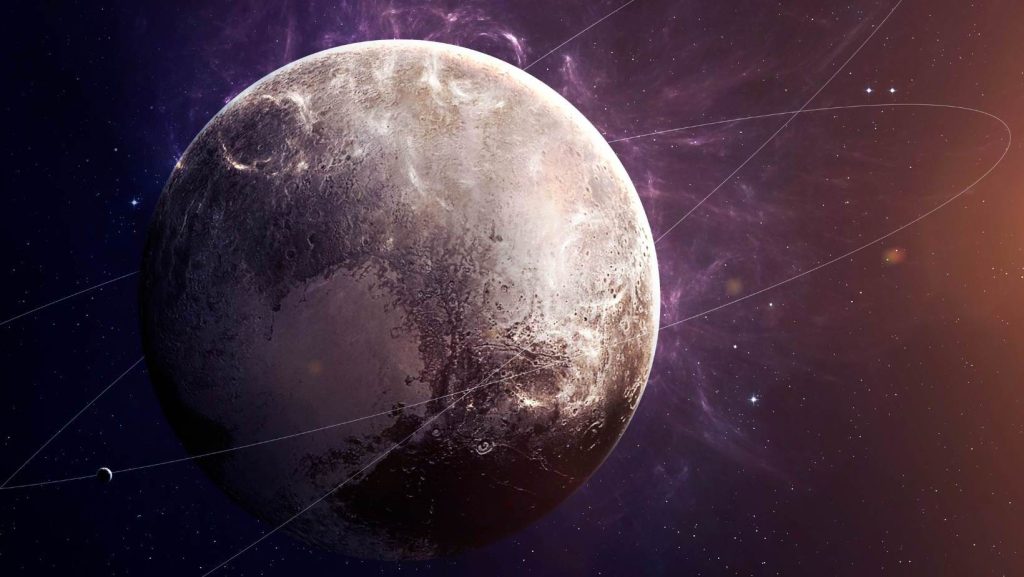Imagine peering through a telescope, your eyes scanning the vast, starry sky until they land on a discovery that would change the course of astronomy forever. That's exactly what happened on a chilly evening in February 1930, when Clyde Tombaugh and Vesto Slipher made a groundbreaking discovery from the Lowell Observatory in Arizona. They introduced the world to Pluto, a distant, icy body that danced on the edges of our solar system. For decades, Pluto held the title of the ninth planet, a mysterious and remote member of our cosmic neighborhood. However, the winds of change swept through the astronomical community in 2006, redefining Pluto's status to that of a dwarf planet. Pluto Day not only celebrates this iconic discovery but also invites us to ponder the ever-evolving journey of space exploration. How did this reclassification alter our understanding of the cosmos, and what does it tell us about the nature of discovery itself?
Key Takeaway
Day Activities
-
Kick off Pluto Day with a stargazing party. Grab a telescope, or just your naked eyes, and try to spot the elusive dwarf planet in the night sky. It's a perfect way to connect with the cosmos and appreciate the vastness of our solar system. Don't forget to bundle up if it's chilly out there!
-
Dive into history by organizing a visit to a local planetarium or science museum. Many institutions host special events or exhibitions dedicated to Pluto and the history of space exploration on this day. It's a fantastic opportunity to learn more about Clyde Tombaugh's groundbreaking discovery and how it changed our understanding of the solar system.
-
Get creative by participating in Pluto-themed art or science projects. Schools and community centers often run competitions or workshops where you can create your own model of Pluto, design a space mission, or even write a story about a journey to the dwarf planet. It's a fun way to engage with astronomy and spark a lifelong interest in the stars.
Interesting Facts
1. Discovery Date
Pluto was discovered on February 18, 1930, by astronomers Clyde Tombaugh and Vesto Slipher.
2. Original Classification
Initially, Pluto was considered the ninth planet in our solar system.
3. Reclassification
In 2006, Pluto got reclassified as a dwarf planet.
4. Location of Discovery
The discovery happened at Lowell Observatory in Flagstaff, Arizona.
5. Celebration Purpose
Pluto Day celebrates planetary discovery and solar system exploration.
Why We Love This Day
- Reflecting on the thrill of discovery
Who doesn't love a good mystery solved? Pluto Day takes us back to 1930, when Clyde Tombaugh and Vesto Slipher cracked one of the cosmos' puzzles, finding Pluto. This day isn't just about a dot in the sky; it's about human curiosity, persistence, and the joy of finally figuring something out. Imagine peering through a telescope, night after night, and then bam! You've found a new planet. That's the kind of eureka moment we're celebrating.
- Understanding our place in the cosmos
Pluto Day isn't just for space buffs; it's a reminder for all of us about our tiny spot in the universe. When Pluto was discovered, it expanded our understanding of the solar system. Even though Pluto got a bit of a demotion in 2006, this day helps us appreciate the vastness and mystery of space. It's like looking at the stars and realizing there's so much more out there. Makes you feel both small and part of something huge, doesn't it?
- Celebrating advances in space exploration
Let's not forget, Pluto Day is a high-five to all those space explorers out there. From the early days of telescopes to sending spacecrafts billions of miles away, this day is a nod to human ingenuity and our quest to know more about our neighbors in space. Every time we learn something new about Pluto or any other celestial body, it's a win for science and a step closer to answering big questions about our universe. Here's to more discoveries that keep us looking up and wondering, "What's next?"
Past & Future Dates
| Month | Day | Year |
|---|---|---|
| FEBRUARY | 18 | 2022 |
| FEBRUARY | 18 | 2023 |
| FEBRUARY | 18 | 2024 |
| FEBRUARY | 18 | 2025 |
| FEBRUARY | 18 | 2026 |
| FEBRUARY | 18 | 2027 |
| FEBRUARY | 18 | 2028 |
FAQ
How do you celebrate Pluto demoted day?
To mark Pluto's demotion from the planetary club, consider diving into the fascinating world of astronomy. Read up on planets, their unique traits, and the history behind Pluto's reclassification. Got kids? Why not whisk them away to the nearest planetarium for a stellar educational adventure? It's a fantastic opportunity to spark a love for the cosmos in young minds, offering lessons on the solar system's wonders.
What is the day on Pluto?
One day on Pluto is a long haul, lasting about 153 hours. That's because it rotates on a tilt of 57 degrees compared to its orbital plane around the sun, making it spin nearly on its side. Additionally, Pluto has a retrograde rotation, which means it spins from east to west, a rare trait shared with Venus and Uranus.
How long is 1 hour on Pluto?
Figuring out an hour on Pluto involves a bit of math. With Pluto's day stretching to 6.4 Earth days or 9,216 minutes, you'd divide that hefty minute count by 6.4 to find that a Plutonian hour equals 1,440 minutes. So, every hour on Pluto is a journey through time, unlike anything we experience here on Earth.
What day was Pluto born?
The discovery of Pluto, credited to American astronomer Clyde Tombaugh, marks its 'birthday' on February 18th, 1930. This monumental find at the Lowell Observatory came 84 years after Neptune was discovered, bringing a new member into the solar family. Named after the Roman god of the Underworld, Pluto also gives a nod to Percival Lowell, pioneering the path to its discovery.
